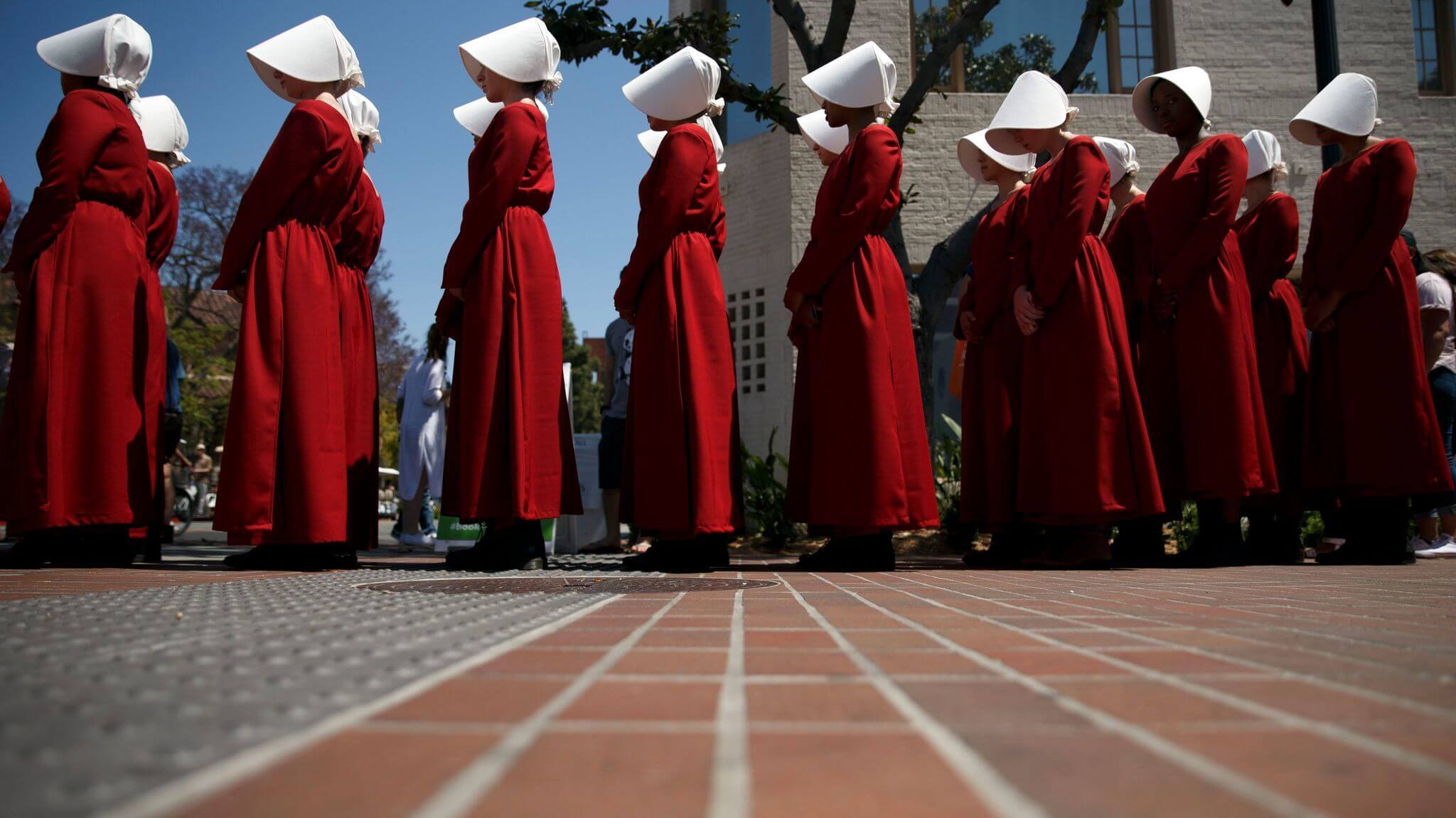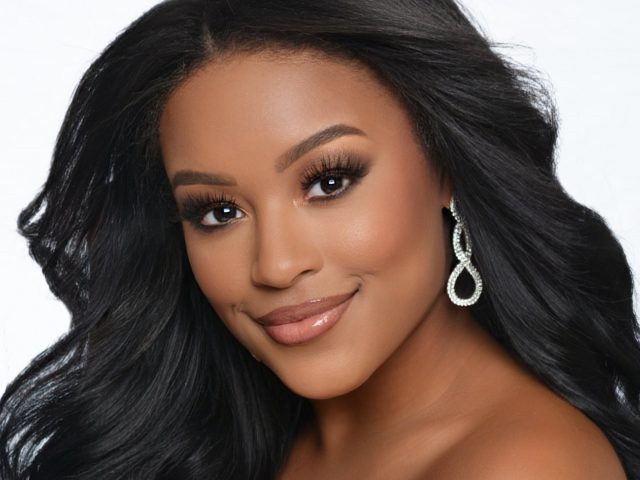![]() Written by Writer’s Corps member Liz Arnone
Written by Writer’s Corps member Liz Arnone
After some amazing wins at this year’s Emmy’s, Hulu’s rendition of Margret Atwood’s classic The Handmaid’s Tale is getting lots of attention. Nominated 13 times, this show takes place in a dystopian society called Gilead, where infertility plagues the world and a police state hierarchy has become the new norm. Gilead consists of powerful men, their wives who fill a “traditional role” of womanhood, and the handmaidens – the women who show signs of fertility and are gifted to the rich and powerful as concubines. It is the perfect storm that showcases serious unhealthy relationship behaviors.
The show itself is absolutely incredible, yet after each episode I was left in a dark gloom that was hard to shake. Eventually, I realized it’s because at every turn and every character interaction, it was impossible for me to sit there and not understand and recognize what the main female characters where experiencing. While the behaviors and situations are taken to the extreme, they happen in today’s society every day, and have happened in relationships I have been in. So, let’s take a look at some terrifyingly “typical” behaviors that Atwood took from our society to form the base of her dystopia.
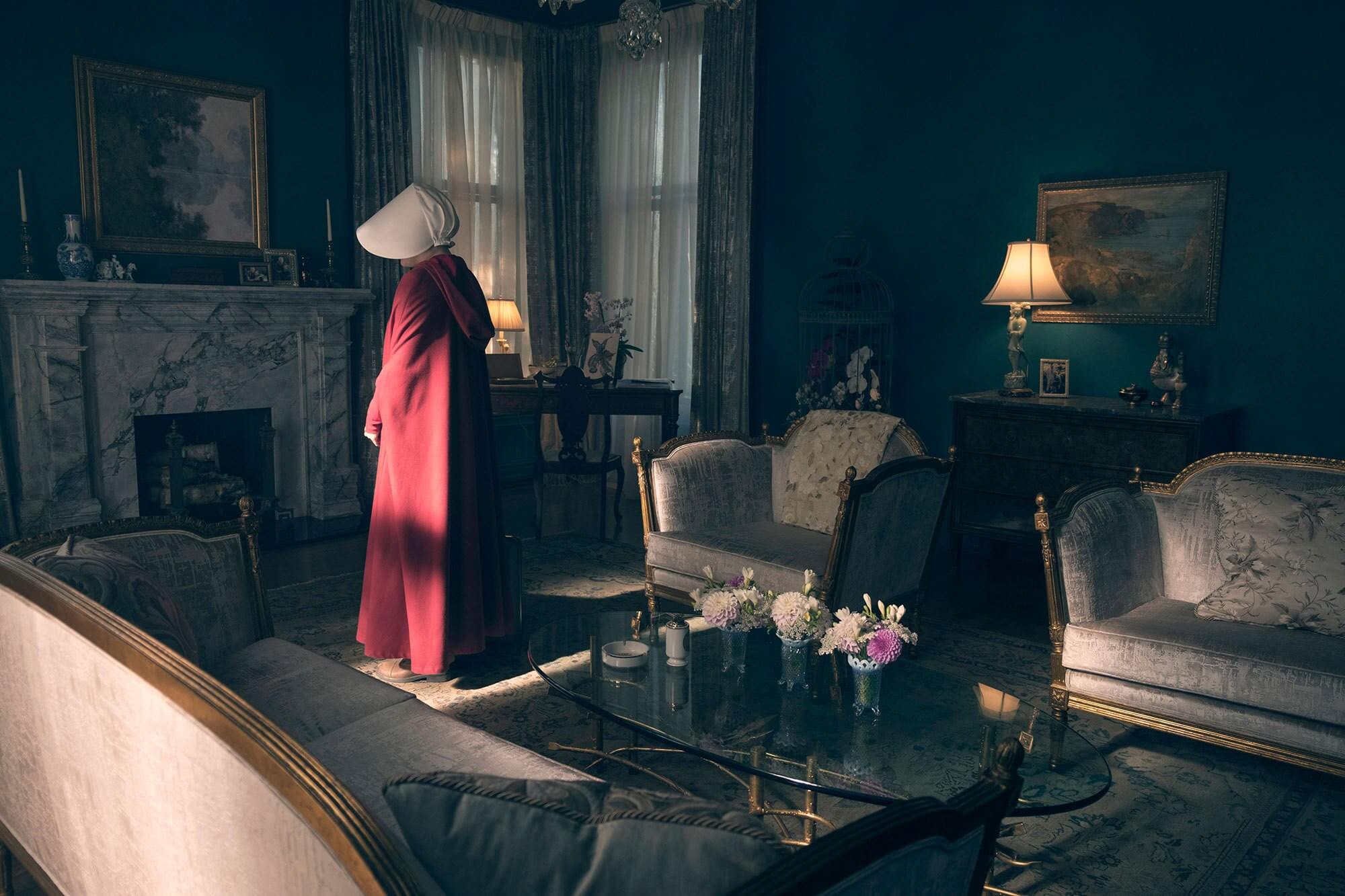
Women sometimes downplay their achievements to protect the male ego.
In Gilead, we watch as the men in this totalitarian state use and discard women for sex, for childbearing, and for status. That is, until we find out that the main male character, called only the Commander, was not the one who set this society in motion. His wife did. She has become so accustomed to the subservient role she created for herself that the Commander is convinced that Gilead is his greatest achievement, when this oppressive society was actually the brain child of his wife. He even goes as far as to ban her from his work study, refuse to fill her in on his meetings, and isolate her from the evolution that her own idea is taking. He readily took credit for his wife’s idea and to keep him confident, she lets him.
In our society, we sometimes see this behavior when someone downplays a promotion, when your S.O. takes credit for a dinner they did not help with, and even something as trivial as letting a partner win in a video game. While The Handmaid’s Tale focuses on the issue that women in society are taught that their husbands need to feel like the protector, breadwinner, and logical half of the relationship, this inequality can be found in any toxic relationship. In a healthy, loving, equal relationship your achievements should be celebrated and your strengths appreciated, not pushed aside or stolen from you by someone who is afraid to be overshadowed.
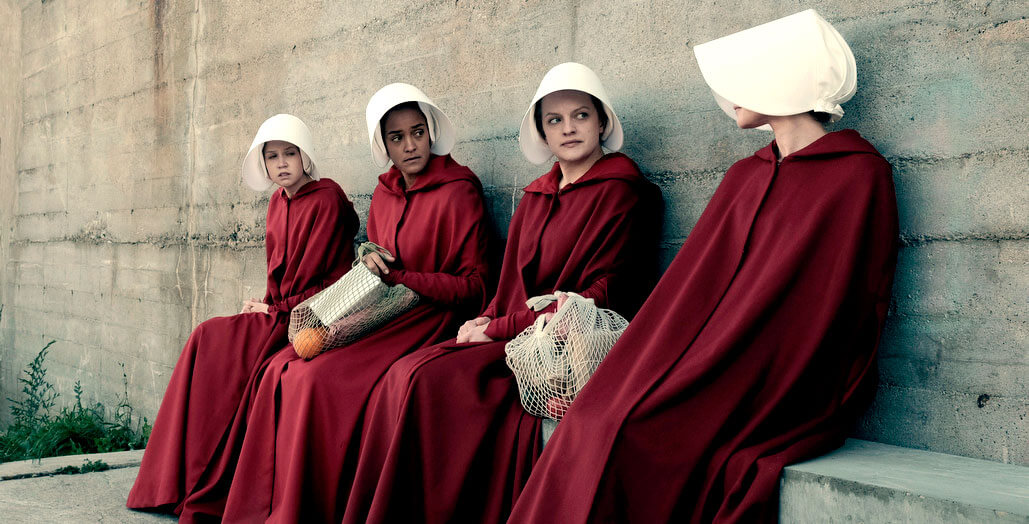
There is a notion in our society that it’s a man’s job to provide structure and support for his family.
One of the most terrifying aspects of the show is when democracy fell and the government took complete control. The government’s first order was that women were no longer allowed to work, own property, or have the luxury of controlling their own money. Only men were entitled to that right. During this episode, June, our main character, sits at her kitchen table in shock while her husband Luke informs her that there is no need to panic, he will always take care of her. June’s lesbian best friend Moira stares at him in horror. She does not have a male next of kin for her money to fall to.
For most of American history, men have been the foremost provider for their families. Unfortunately, that ideal is still ingrained into our culture and, because of this, some men still define their masculinity by their ability to provide. This not only causes problems in some relationships (both hetero and gay), but this is also unfair to the men who are pushed into the provider box. That’s why Luke’s response to June was so baffling to me. The basic right to have money of her own was just taken away from June, and her husband deemed it not enough to worry about since he was there to be her supporter, her protector, and the one in control of the family’s finances. Luke failed to see the problem with that. In a healthy relationship, both partners have an equal right to provide for themselves and their family, and have the autonomy to manage their own finances.
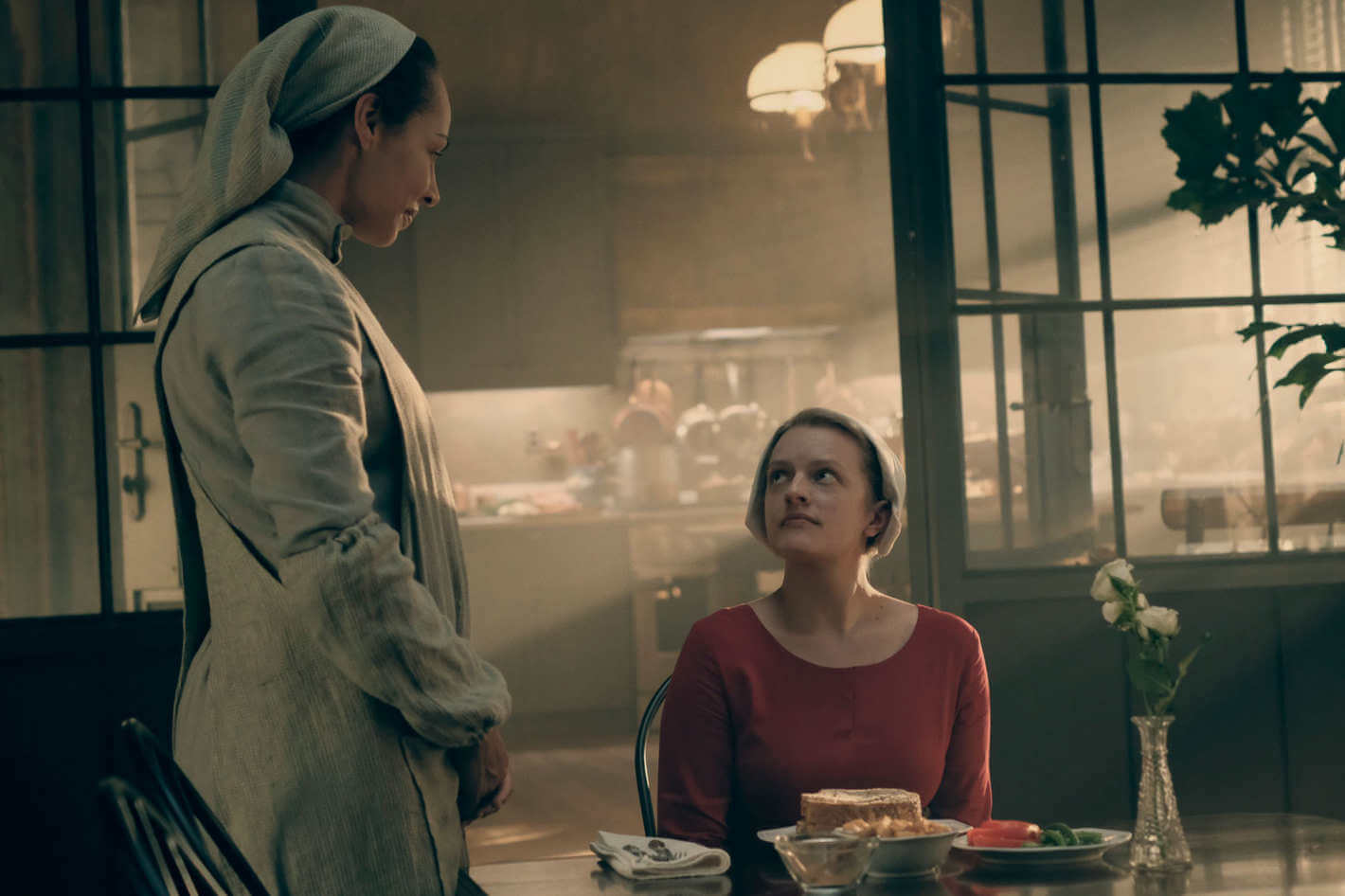
Unhealthy behaviors are acceptable if they align with social norms.
While men in Gilead seem to have all the power, there are still strict rules to follow. Sex has become a taboo strictly meant for childbearing. Those caught with women outside their marriage or with their handmaids without their wives will suffer harsh punishments. Yet prostitution clubs exist and handmaids are forced to engage in affairs with men, showing that if a behavior is wrong, yet serves those in power, it becomes suddenly acceptable.
In any kind of relationship, constantly insulting your significant other “as a joke,” expecting sex simply because you are dating, and showing explicit texts and photos to friends are all behaviors that are widely ignored, meanwhile they are the big indicators of a toxic relationship. Just because some of your friends demand that their significant other lose 10 pounds before a vacation together does not make it right. Knowing the difference between healthy and unhealthy behaviors can help you avoid unhealthy behaviors that are socially acceptable.
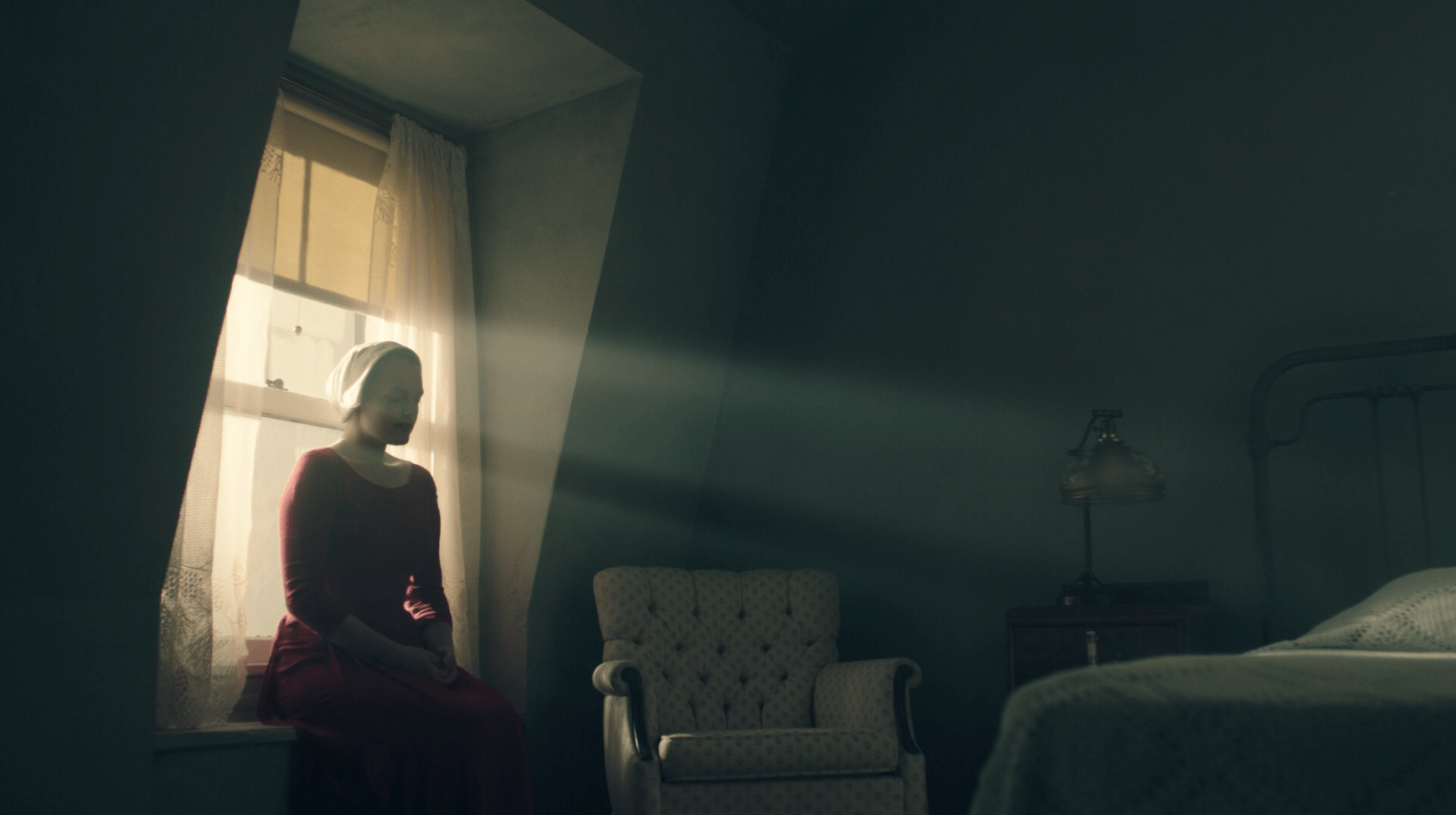
Motherhood is not a choice for women to make.
With infertility widespread in Gilead, those able to birth children are forced to do so with only the wealthiest of men. Previous husbands or partners were taken away and these childbearing women are passed around the rich until they are able to conceive. The handmaids, as they are called, have no control over their own bodies, their choice of partners, or their choice of motherhood.
Unfortunately, this lack of choice is a huge problem in our own society, too. In the modern-day world and Gilead’s dystopia, women are shamed for having sex unless it is done to conceive and those who are infertile are sometimes seen as failures, especially in family-centric cultures.
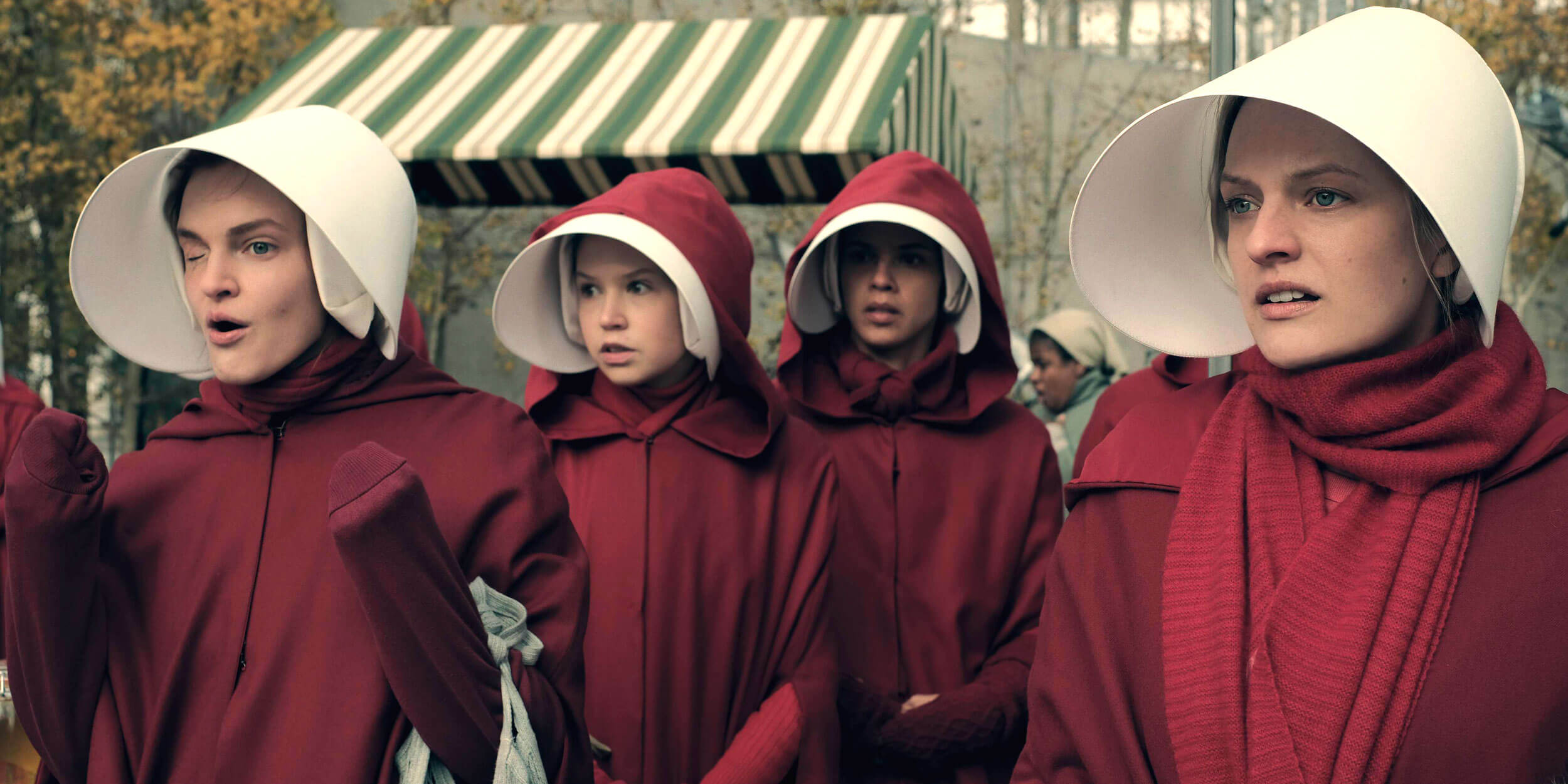
The Handmaid’s Tale shed’s an important light on several unhealthy themes in our own society. The show, deserving of every award it has won, is must-see. Although Margret Atwood wrote this book as a commentary on women and relationships back in 1985, over three decades have passed and some of the unhealthy relationship behaviors that plagued Atwood’s reality are still issues faced by many people today.
All photos courtesy of Hulu.
Browse by Category

Finding Strength in Our Stories: Domestic Violence Awareness Month
⚠️ Trigger Warning: This blog includes content and language related to relationship abuse. Please read with care. 💙 October is…
Understanding Domestic Violence Awareness Month (DVAM)
October is almost here, and that means it’s time to…
4 Students Share How They Helped a Friend in an Unhealthy Relationship
Watching a friend struggle in an unhealthy or abusive relationship…
Courageous Boundaries: Managing Life with Your Ex Partner by One Love Foundation and Miss Kansas, Alexis Smith
Co-authored by One Love Foundation and Miss Kansas, Alexis Smith …
How to End a Summer Romance or Friendship
Summer flings and friendships can feel fleeting. So why is…





